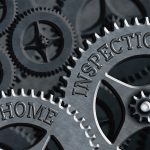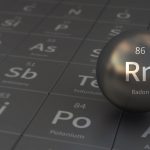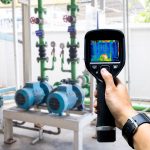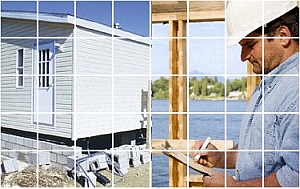RESIDENTIAL HOME INSPECTION

Real estate home inspections are an important part of the home buying process. A home inspection is conducted by a licensed home inspector to assess the condition of the property and identify any potential issues or defects.
During a home inspection, the inspector will evaluate the structural integrity of the home, check for any signs of water damage or microbial growth, inspect the roof, plumbing, electrical systems, HVAC systems, and more. The goal of the inspection is to provide the buyer with a comprehensive understanding of the condition of the property before finalizing the purchase.
It is highly recommended for home buyers to schedule a home inspection as part of the real estate transaction process to ensure that they are making an informed decision and are aware of any potential issues that may need to be addressed.
RADON MONITORING

Radon is a naturally occurring radioactive gas that can seep into homes and buildings through the ground. Long-term exposure to high levels of radon can increase the risk of lung cancer. Tennessee has been identified as a high-risk state for elevated levels of radon gas. Testing for radon can help homeowners and residents identify if there are elevated levels of radon in their living spaces and take steps to mitigate the risk. It is recommended that all homes in Tennessee undergo radon testing to ensure the safety of the occupants.
THERMAL IMAGING

- Detection of Issues: Thermal imaging can detect hidden issues such as moisture intrusion, air leaks, insulation deficiencies, and electrical hot spots that may not be visible to the naked eye. This can help identify potential problems early on and prevent costly repairs in the future.
- Energy Efficiency: Thermal imaging can identify areas of heat loss or air leakage in a home, allowing homeowners to improve energy efficiency by sealing gaps and improving insulation. This can lead to lower energy bills and a more comfortable living environment.
- Safety: Thermal imaging can detect overheating electrical components, which can help prevent electrical fires. It can also identify areas of potential mold growth due to moisture intrusion, improving indoor air quality and overall safety.
- Non-Invasive: Thermal imaging is a non-invasive tool that does not require any physical damage to the property. It can quickly scan a large area and provide valuable information without the need for invasive inspections.
Overall, the use of thermal imaging in a home inspection can provide homeowners with a comprehensive assessment of their property's condition, helping them make informed decisions about maintenance, repairs, and improvements.
SEWER SCOPE

- Identify Potential Issues: A sewer scope inspection can help identify any potential issues or damage in the sewer line that may not be visible during a regular home inspection. This can include blockages, leaks, root intrusions, or other problems that could lead to costly repairs in the future.
- Prevent Future Expenses: By conducting a sewer scope inspection before buying a home, you can potentially uncover any existing sewer line issues and address them before finalizing the purchase. This can help prevent unexpected expenses and repairs down the road.
- Negotiation Tool: If the sewer scope inspection reveals any issues with the sewer line, you can use this information as a negotiation tool with the seller. You may be able to negotiate repairs or a reduction in the purchase price to account for the cost of addressing the sewer line issues.
- Peace of Mind: Knowing the condition of the sewer line before buying a home can give you peace of mind and confidence in your investment. You can move forward with the purchase with a better understanding of the property and any potential maintenance or repair needs.
Overall, conducting a sewer scope inspection before buying a home is a proactive step that can help you make an informed decision and avoid potential problems related to the sewer system in the future.
Foundation Certifications
 We have partnered with Harrison Engineering to certify that foundations are compliant to HUD/FHA, VA, and Conventional Lending guidelines.
We have partnered with Harrison Engineering to certify that foundations are compliant to HUD/FHA, VA, and Conventional Lending guidelines.
Their Professionally Licensed Engineers ensure that home foundations are in compliance with HUD/FHA, VA, and Conventional Lending requirements and other national standards.
https://www.foundationcerts.com/
Please don't hesitate to contact us with any questions you may have.